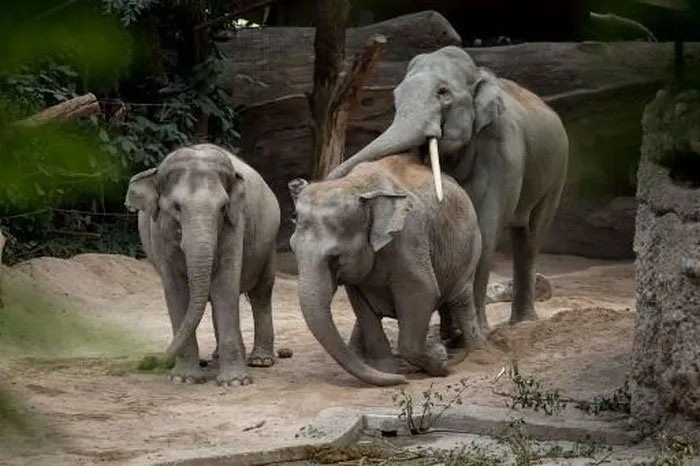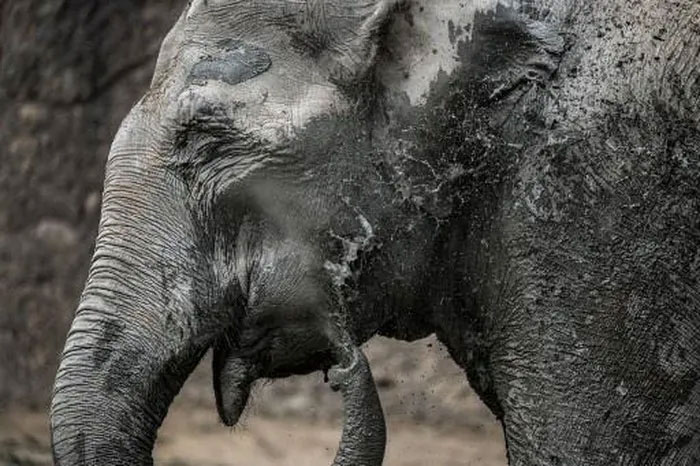A dangerous virus has emerged at the Zurich Zoo in Switzerland, killing three Asian elephants within a month, leaving experts puzzled as they have yet to find a way to stop it.
The zoo, overlooking Switzerland’s largest city, now has only five large animals roaming in the 11,000 m2 elephant enclosure, according to AFP.
The first victim of the elephant herpes virus (EEHV) was two-year-old calf Umesh, who succumbed at the end of June. Just a few days later, his eight-year-old sister, Omysha, also fell ill.
Recently, on July 23, Ruwani, a five-year-old female elephant from another herd, also died.
Due to the rapid spread of the herpes virus, young Asian elephants suffer from internal bleeding and organ failure.
In captivity, this virus is the “primary cause of death for elephants aged 2-8,” said zoo spokesman Pascal Marty to AFP.
He noted that the virus is also known to kill elephants in the wild, but is “somewhat harder to detect.”

Asian elephants seen at Kaeng Krachan Elephant Park at Zurich Zoo on July 27. (Photo: AFP).
Final Farewell
The herpes virus is latent in most elephant species, both in the wild and in captivity. However, in some cases, it can suddenly become dangerous, killing elephants within just a few days.
“We still don’t know why it happens and when it happens,” Mr. Marty said.
The remaining five Asian elephants at the zoo—all adults—were allowed to spend a few hours with the body of the calf from their herd.
Mr. Marty stated that the animals needed “time to say goodbye.”
“It’s hard to say whether they feel sad or not, as grief is something more human-oriented,” he said.
However, he emphasized that because elephants are highly social animals, they must recognize when a member of their herd has died.
“They need to understand that this elephant is no longer part of their group,” he stated.

Zurich Zoo spokesman Pascal Marty. (Photo: AFP).
Less than a week after the most recent elephant’s death, this giant mammal appears to have become depressed, showing little interest in daily activities, from swimming in the large pond to foraging for food.
They probe their trunks into tree holes, where a computer program often randomly hides carrots and hay to encourage the animals to move and search for food as they would in the wild.
Challenges in Containing the Spread
Zurich Zoo opened a new elephant enclosure in 2014, providing the herd with six times more space than before.
However, after eight years, the zoo admits they are experiencing “difficult days.”
“What is particularly frustrating is that we are powerless against this virus, despite having access to the best veterinary care from the university hospital in Zurich,” zoo director Severin Dressen stated in a release.
So far, there is no vaccine available for this virus. Although antiviral medications have been developed, they are not very effective, and even when elephants are treated quickly, only about one-third of them survive.
“The epidemiology of this disease is still unclear,” said Bhaskar Choudhury, a veterinarian and member of the International Union for Conservation of Nature’s (IUCN) Asian Elephant Specialist Group.
“This virus does not frequently infect adult elephants, but the frequency can increase when they are under stress. This is thought to be the source of infection for calves,” he told AFP.

A deadly virus has emerged at Zurich Zoo, killing three Asian elephants. (Photo: AFP).
Asian elephants, which can live up to around 60 years, are listed as endangered by the IUCN, with only about 50,000 remaining in the wild.
Deforestation, urban expansion, and agricultural development have stripped away their natural habitats, while poaching and illegal ivory trade also threaten many herds.
“Populations are declining everywhere,” Mr. Marty said, adding that for conservation, “nurturing healthy and strong Asian elephant populations in Europe is also truly important.”
He mentioned that Zurich Zoo has one of the most modern elephant enclosures in the world and intends to continue its breeding mission.
He described the elephants in the park as “partners” in educating people about the challenges faced by wild elephants.
“The elephants at the zoo play an important role as ambassadors for their species,” he stated.


















































